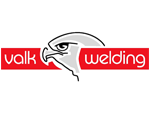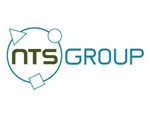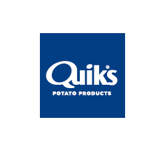Operator Support important step towards Digital Factory
Digitization supports complex assembly, facilitates zero defects, and transition to a Lean organization
In the factory of the future, product and process design will be completely digital. The main goal of a Digital Factory is to use digital tools to get the right information to the right place, at the right time.
The advantages of a Digital Factory are obvious and essential for the factories of the future. Besides, a product passport is created that provides all information about the assembled product.
These integral functionalities are essential for the technician:
1. Micro-routing & ‘assy’ structures
In order to carry out the assembly process as effectively as possible, micro-routing is defined. This micro-routing contains all the steps that the technician performs during the assembly process. The ERP routing remains important from a financial perspective. Capturing the 'assy' structures is important for the 'tracking' and 'tracing' of product parts.
2. (Stepwise) Digital Work Instructions
The degree of work instructions is important to support the technician, which means they must be adaptive. In the first period as an inexperienced employee, you will receive many work instructions in the process. Once you have more experience, you work faster and errors occur less often. At that point, the system can automatically scale down in instructions while quality assurance remains active in the background. Given the scope of work instructions for complex machines, a 'stepwise' approach is often not chosen.
3.Time registration
Times are automatically logged as soon as the technician starts the execution activities. Hours spent during disruptions or quality issues are not counted. This means that accurate insight can be achieved in the performed tasks and operations.
4. Product Passport & Device History Record
To gain insights into the product and the production process, all data is stored in relation to the product. Also the assembly relationship (tracking & tracing) is accurately recorded. This data provides insight into whether a product meets the predetermined specifications.
5. Continuous improvements/ Pareto analyses
Various measurements provide an accurate view of the progress and effectiveness of the factory. These measurements serve as an important input for the continuous improvement approach. Measured values are translated into Pareto analytics that stimulate improvement plans and also make the effects measurable so that the intended effect can be validated.
6. ‘Ticketing’ for resource disturbances
Resource disturbances can sometimes have major effects on assembly because an assembly is interrupted and progress is dependent on available material. These material disruptions are handled by material tickets. Resources that are missing, delivered incorrectly, or rejected can be registered so a request is sent directly to the warehouse for a replacement. In the event of a rejection, a quality report is immediately created that can be handled by the quality department.
7. Out of Control Action Plan (OCAP) & SPC
The technician is supported in handling technical and process-related problems during production by means of an OCAP analysis. Root-cause analysis can be performed quickly to take the right actions. The knowledge collected in tickets based on the technician's context (the product, the type of work, the department) is used to resolve the disruption.
8. Internet of Things – sensor information
Measurement data is of great importance for the Product Passport and also eliminates the chance of error during measurement and other manual registrations. In-time-series databases, large amounts of data are locked in and interpreted by smart algorithms.
9. Dashboarding
Dashboards are used to map the data in a clear and understandable way. The purpose of these dashboards is to enable the user to make decisions based on data. An effective dashboard selects and visualizes data.
A lean organization strives for maximum customer value and minimum waste. With the integral operator support, you take a step in that direction; it is a precondition for the realization of the digital factory and the maintenance of the competitive position.
About Togetr:
Togetr builds a new generation of business applications for manufacturers. This allows them to fully evolve towards the Smart Industry with the latest developments. Request a free demo and discover how we tackle challenges from the manufacturing industry.











